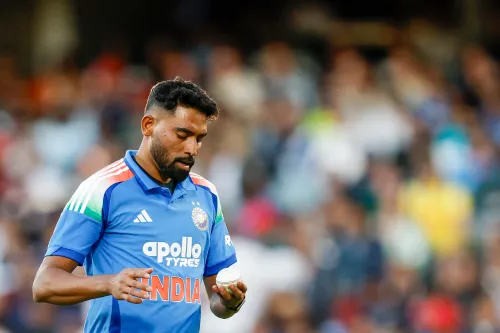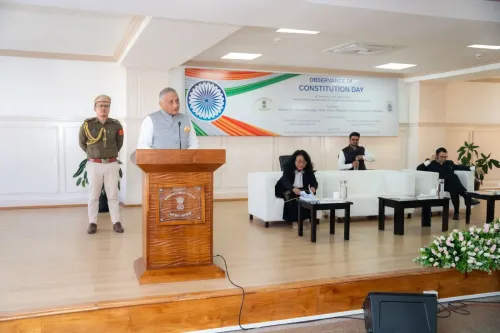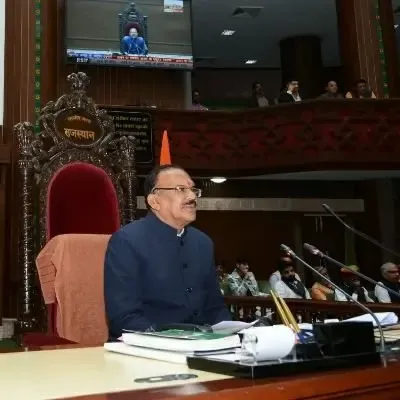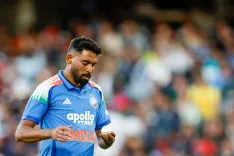Is India a Living Example of Democracy and Equality?
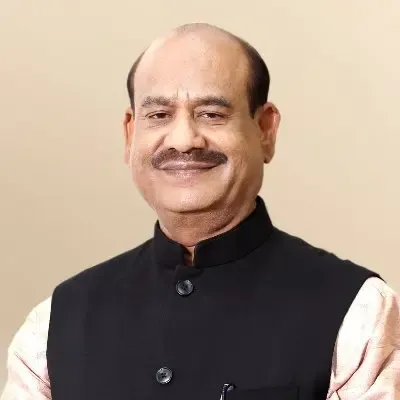
Synopsis
Key Takeaways
- India exemplifies democracy and equality.
- Global collaboration is essential for tackling challenges.
- India's role in global health security is significant.
- Women empowerment is prioritized in Indian governance.
- Technological advancements can enhance democratic processes.
Barbados, Oct 11 (NationPress) Lok Sabha Speaker Om Birla stated that India stands as a vibrant testament to democracy and equality, with the Constitution guiding the nation for the past 75 years, as per an official report shared on Saturday during the 68th Commonwealth Parliamentary Conference in Barbados.
He asserted that democracy is the essence of India, equality its determination, and justice its hallmark.
Birla delivered these insights while speaking to delegates at the General Assembly of the 68th Commonwealth Parliamentary Conference, themed “The Commonwealth – A Global Partner.”
During his address, the Speaker extended an invitation to the Presiding Officers of the Commonwealth Parliament to participate in the upcoming Conference of Speakers and Presiding Officers of the Commonwealth (CSPOC) scheduled for January 7 to 9, 2026, in New Delhi.
In a post on X, Birla expressed, “I am honoured to address the 68th Commonwealth Parliamentary Conference in Barbados. The Commonwealth represents more than just a collection of nations - it is a family bonded by shared values, democracy, and a commitment to dialogue. I highlighted that India is resolutely focused on enhancing parliamentary institutions, fostering inclusive development, and advancing cooperation rooted in equity and justice.”
He pointed out that global challenges like climate change, pandemics, food scarcity, and inequality transcend national borders, demanding collaborative solutions.
Birla called for collective action to tackle these issues, emphasizing that solutions cannot be achieved in isolation.
He underlined the significance of food and health security, showcasing India's role as a dependable ally in global food and nutrition security.
Birla reflected on India's transformation from a state reliant on external food sources to its current stature as a global powerhouse.
He acknowledged India's considerable contributions during the Covid-19 pandemic, noting that the nation provided medicines and vaccines to over 150 countries, reinforcing the belief that health is a right, not a privilege.
Birla emphasized India's position as the largest democracy in the world and its status as the fastest-growing major economy, highlighting that India is the first significant country to fulfill the Paris Agreement targets ahead of time.
Through initiatives such as the International Solar Alliance and the Coalition for Disaster Resilient Infrastructure, India has demonstrated its global responsibility for environmental stewardship.
Birla mentioned India's strides in promoting women's empowerment, referencing provisions for women's reservation in Panchayati Raj institutions and urban local bodies.
He noted that more than 1.4 million out of 3.1 million elected representatives in rural Panchayati Raj institutions are women. He also highlighted the Nari Shakti Vandan Act, which mandates one-third reservation for women in Parliament and Legislative Assemblies, showcasing the prioritization of youth and women in Indian democratic structures.
Birla spoke on the potential of technology, especially Artificial Intelligence and digital platforms, to improve the transparency and efficiency of democracy.
He advocated for ensuring that technology serves humanity, calling for the establishment of global standards that encourage innovation while minimizing harm, ensuring technology's advantages reach all while limiting its adverse effects.

